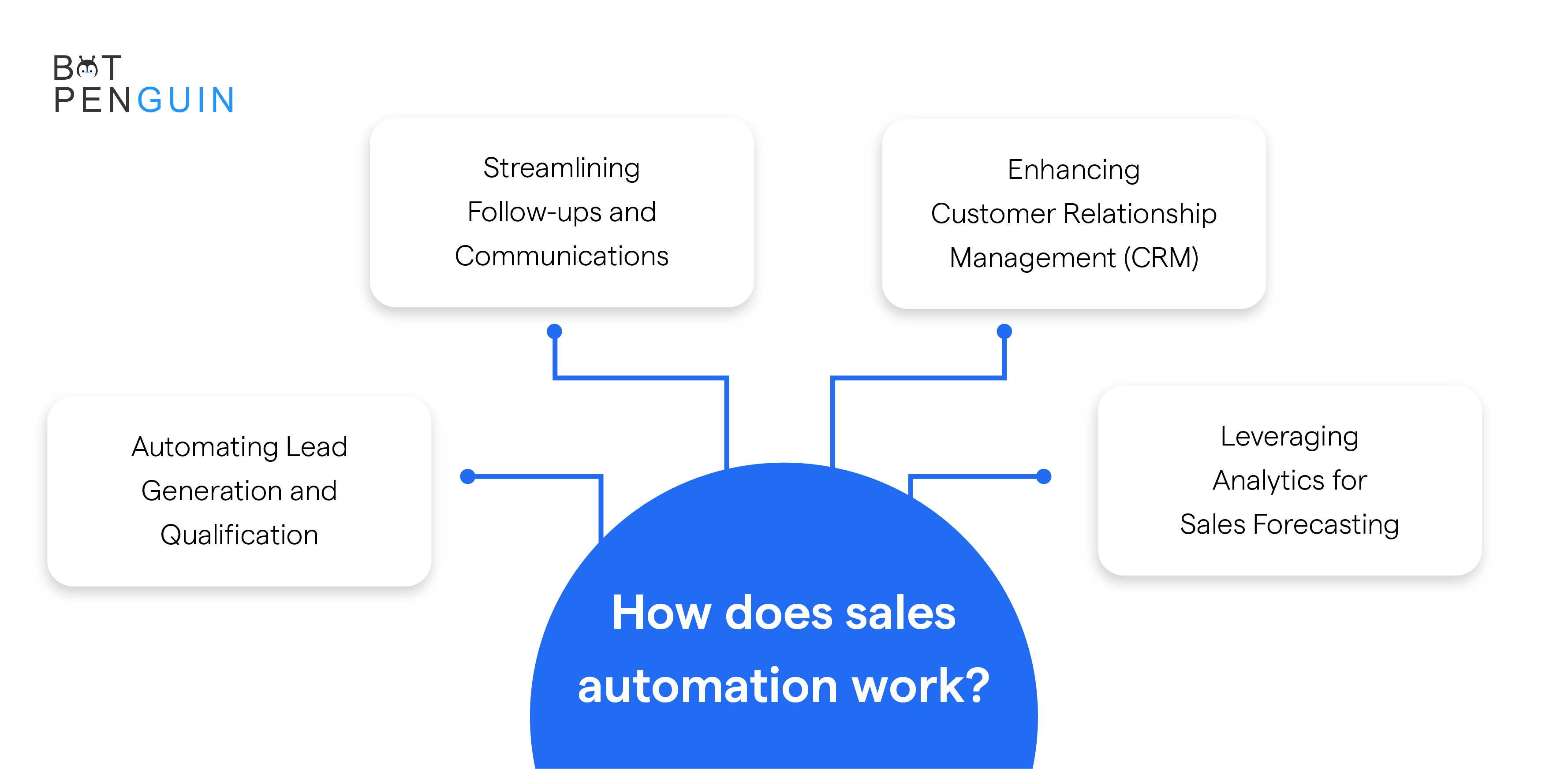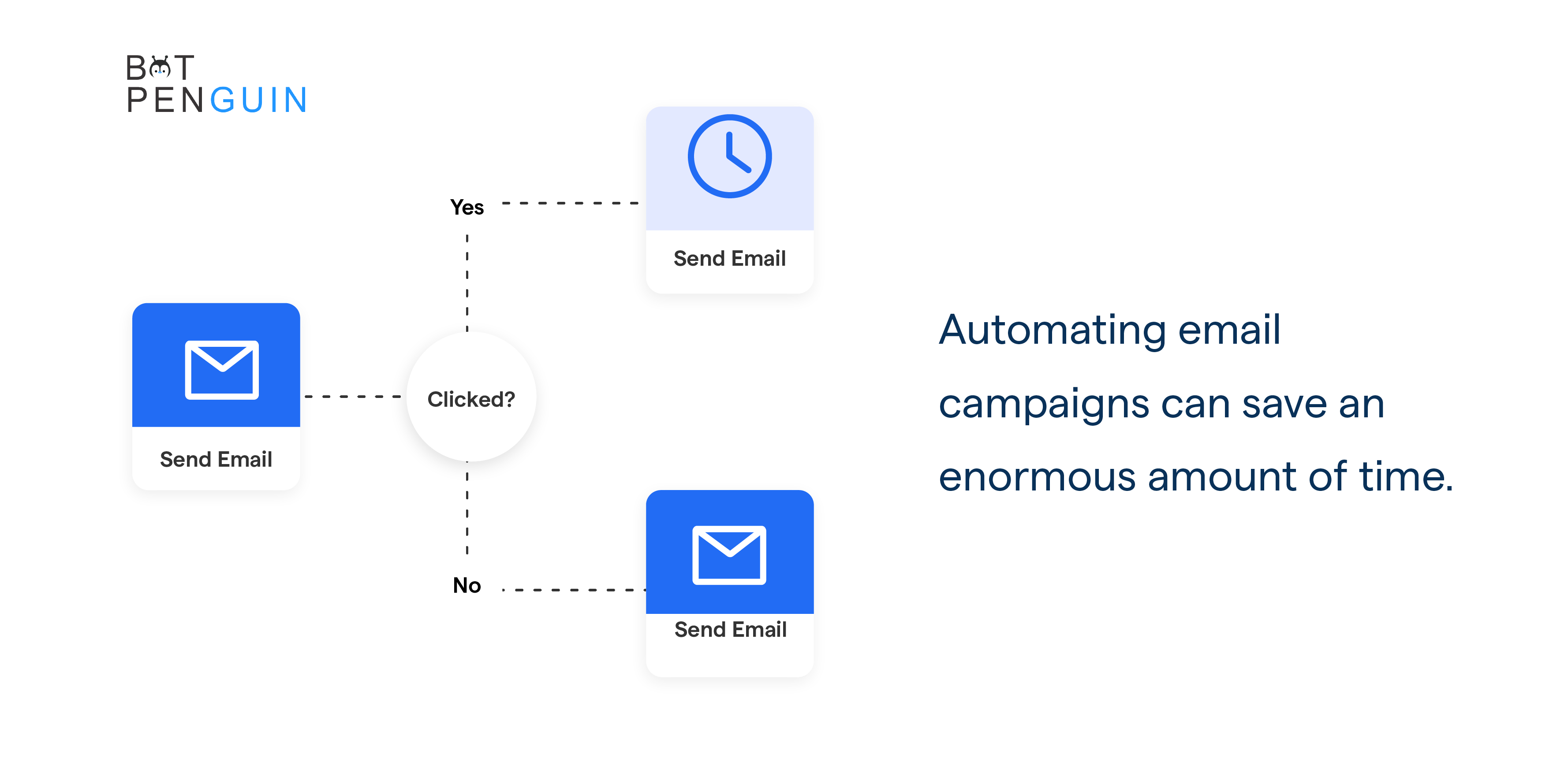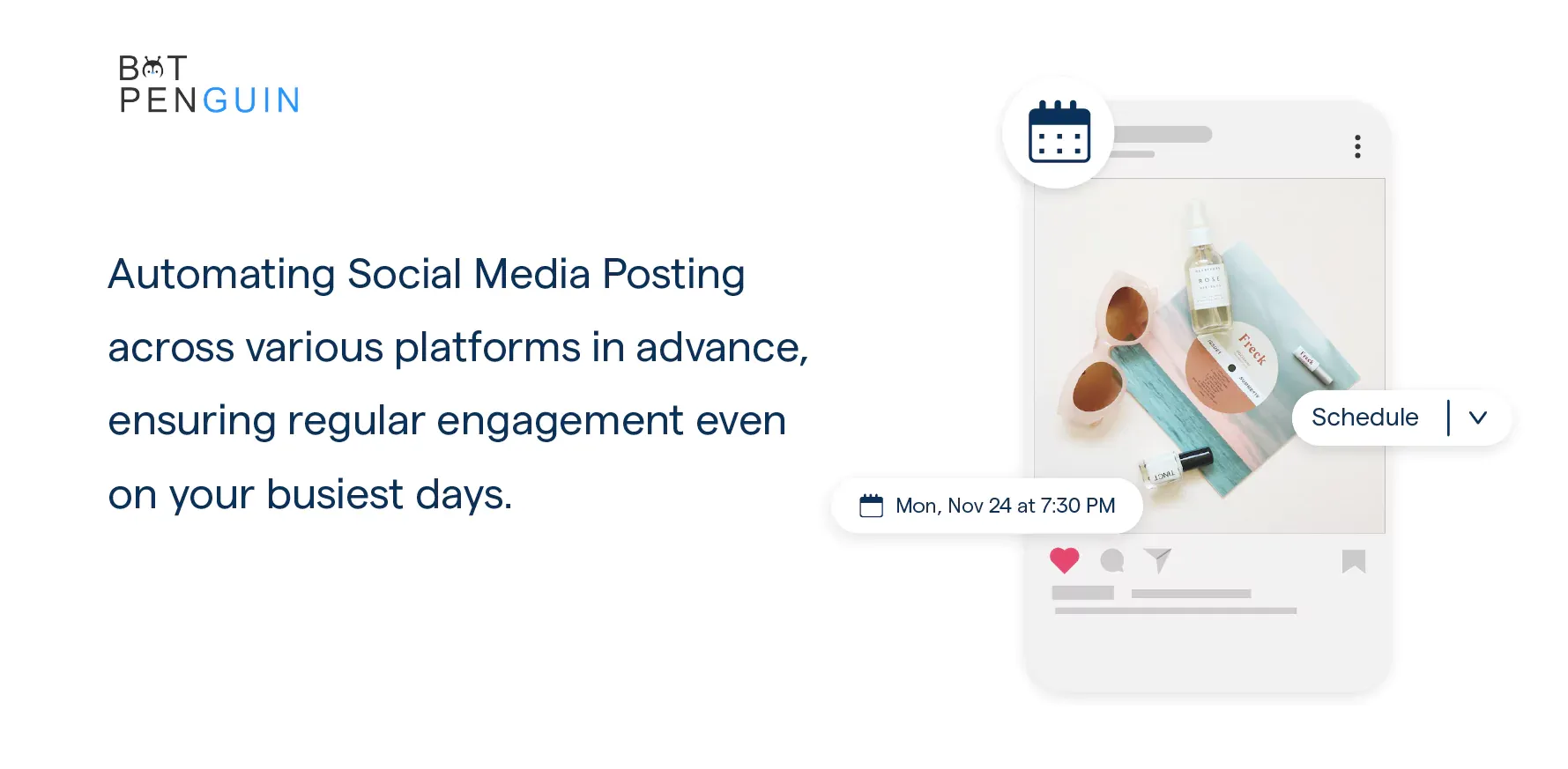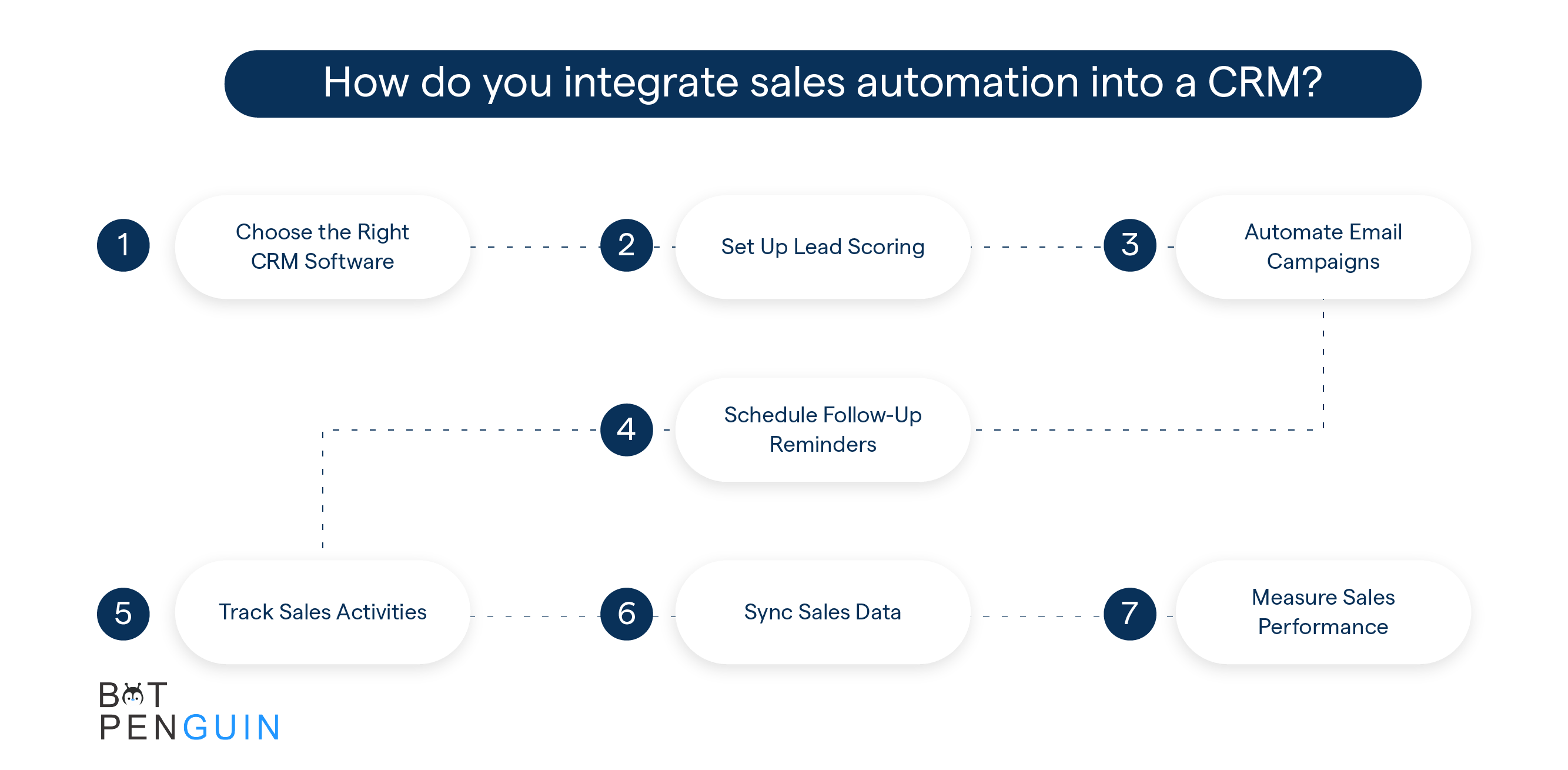Did you know that, according to Salesforce, sales reps spend just 34% of their time actually selling? The rest is consumed by tasks like data entry, scheduling meetings, and other administrative tasks. Yes, it's as thrilling as watching paint dry.
But what if we told you there's a way to automate these mundane tasks, freeing up time for your sales team to do what they do best – sell? That's where sales automation comes into play, like a superhero swooping in to save the day.
Sales automation can drastically reduce the time spent on repetitive tasks, increase efficiency, and improve accuracy. It's like having a tireless assistant working 24/7, handling all the grunt work.
According to a study by Nucleus Research, sales automation tools can increase sales productivity by 14.5% and reduce marketing overhead by 12.2%.
So, buckle up! We're about to dive into eight sales automation tips that could supercharge your sales process and help your business grow.
Let's dive in!
What is Sales Automation?
Sales automation is the process of streamlining and automating repetitive, time-consuming tasks in the sales process, allowing sales teams to focus on more strategic and relationship-building activities.
By leveraging technology, businesses can improve efficiency, reduce human error, and enhance the overall sales experience for both their teams and customers.
Sales automation tools can include customer relationship management (CRM) systems, email marketing software, lead scoring and nurturing tools, and chatbots, among others.
One example of sales automation in action is the use of BotPenguin's chatbots. BotPenguin offers AI-powered chatbot solutions that can be integrated into websites, social media platforms, and messaging apps to engage with customers and prospects in real-time, 24/7.
These chatbots can handle various tasks, such as answering frequently asked questions, capturing lead information, booking appointments, and even processing orders.
By incorporating a BotPenguin chatbot into the sales process, businesses can reduce the workload on their sales teams and ensure that potential customers receive prompt, accurate information.
How does sales automation work?

Sales automation is like having a trusty sidekick in the world of sales. It uses software to replace manual, time-consuming tasks with automated processes. Imagine, instead of spending hours inputting data, you could be crafting that killer sales pitch or building relationships with clients.
Automating Lead Generation and Qualification
Lead generation and qualification can be like finding a needle in a haystack. Automation tools can sift through potential leads, scoring and qualifying them based on predefined criteria. No more wasting time on leads that don't pan out. Now, you're fishing with a net, not just a single line.
Streamlining Follow-ups and Communications
Remembering to follow up with each lead can feel like juggling flaming torches. Sales automation tools can schedule personalized follow-ups and send automated emails or messages. It's like having an infallible personal assistant who never lets anything slip through the cracks.
Enhancing Customer Relationship Management (CRM)
Sales automation can supercharge your CRM. It synchronizes data across platforms, provides real-time updates, and tracks customer interactions. It's like having a bird's eye view of your entire sales process, providing crucial insights and ensuring no opportunities are missed.
Leveraging Analytics for Sales Forecasting
Sales automation isn't just about handling the grunt work; it can also predict the future (well, sort of). It uses analytics to forecast sales trends based on historical data, helping to plan and strategize effectively. It's like having a crystal ball that guides your sales decisions.
8 Tips for sales automation to increase revenue
Here are 8 valuable tips for implementing sales automation strategies. Streamline your processes and maximize your sales potential for increased revenue growth.
1. Implement CRM Software
Customer Relationship Management (CRM) software is like the lifeblood of sales automation. It lets you manage all customer interactions and data in one place, making it easier to track leads, forecast sales, and analyze trends. For example, Salesforce and HubSpot CRM automate data entry, remind you about follow-ups, and even send personalized emails, letting you focus on nurturing relationships and closing deals.
2. Automate Email Campaigns

Automating email campaigns can save an enormous amount of time. With tools like Mailchimp or Constant Contact, you can segment your audience, schedule emails, and personalize content based on customer behavior. Imagine having a series of emails going out to new subscribers, introducing your brand and guiding them down the sales funnel while you kick back with a cup of coffee.
3. Use Chatbots for Customer Service
Chatbots can handle routine inquiries, provide product suggestions, and even book meetings, all while you sleep! They're like your tireless, 24/7 customer service reps. For instance, many e-commerce sites use chatbots to answer FAQs, freeing up human reps to handle more complex issues.
4. Leverage AI for Predictive Analysis
Artificial intelligence (AI) can predict customer behavior and sales trends by analyzing massive amounts of data. Salesforce tools such as Einstein Analytics can provide insights into which leads are most likely to convert, allowing you to prioritize your efforts. It's like having a crystal ball that shows you where to direct your efforts for the best results.
5. Automate Social Media Posting

A consistent social media presence is crucial for brand visibility. Automation tools like Buffer or Hootsuite allow you to schedule posts across various platforms in advance, ensuring regular engagement even on your busiest days. It's like cloning yourself across all social media platforms, engaging with customers while you're in a meeting or enjoying a day off.
6. Use Sales Intelligence Tools
Sales intelligence tools provide relevant, real-time information about prospects, helping you personalize your sales approach. LinkedIn Sales Navigator, for example, alerts you about job changes, shared connections, and common interests, allowing you to tailor your pitch and establish rapport more effectively.
7. Automate Reporting
Automated reporting not only saves time but also reduces errors. Tools like Zoho Reports can generate real-time reports and dashboards, providing insights into key metrics like sales trends, team performance, and customer behavior. Imagine having detailed, accurate reports at your fingertips without the headache of manual data crunching.
8. Streamline Proposal and Contract Management
Automating business proposal and contract management can speed up the sales cycle. Tools like PandaDoc allow you to create, send, track, and electronically sign sales documents, reducing the back-and-forth and waiting time. It's like having a personal assistant handling all the paperwork while you seal the deal with a firm handshake (or a virtual high-five!).
How do you integrate sales automation into a CRM?

Choose the Right CRM Software
Select a CRM platform that supports sales automation features or can easily integrate with third-party sales automation tools, ensuring seamless synchronization and improved sales processes.
Set Up Lead Scoring
Implement lead scoring within your CRM to prioritize leads based on their level of engagement and likelihood to convert, helping sales representatives focus on high-potential prospects.
Automate Email Campaigns
Integrate email marketing tools with your CRM to create and send targeted, personalized email campaigns to prospects, streamlining lead nurturing and conversion processes.
Schedule Follow-Up Reminders
Configure your CRM to send automated reminders to sales representatives for timely follow-ups with leads, ensuring that no potential sale falls through the cracks.
Track Sales Activities
Monitor sales activities within your CRM, such as calls, emails, and meetings, for increased visibility and a better understanding of the sales process, leading to strategic improvements.
Sync Sales Data
Integrate your CRM with other sales tools, such as e-commerce platforms or marketing automation software, to ensure synchronized data and up-to-date information on all leads and customers.
Measure Sales Performance
Utilize the CRM's built-in reporting and analytics features to track key performance metrics, identify patterns, and optimize sales strategies for increased revenue and growth.
Conclusion
Implementing sales automation in your business is a game-changer for growth and efficiency. By utilizing the eight tips mentioned in this blog, your sales team can save time, streamline processes, and focus on what truly matters—building relationships and closing deals.
Embracing automation ensures that your business stays ahead of the curve while adapting to the ever-evolving technological landscape. Remember, the future of sales lies in leveraging the power of technology to improve productivity, enhance customer relationships, and drive revenue.
In an increasingly competitive market, businesses that capitalize on sales automation opportunities will not only survive but thrive, setting themselves apart as innovative, forward-thinking leaders.
FAQs
What is sales automation?
Sales automation involves streamlining repetitive, time-consuming tasks in the sales process using technology, allowing sales teams to focus on building relationships and closing deals.
How does sales automation benefit businesses?
Sales automation increases efficiency, reduces human error, ensures consistent follow-ups, accelerates lead conversion and provides valuable insights to optimize sales strategies.
Which sales tasks can be automated?
Tasks such as lead scoring, email campaigns, follow-up reminders, data syncing, and performance tracking can be automated to improve the sales process.
Can sales automation integrate with CRM systems?
Yes, many CRM systems support sales automation features, either built-in or through integration with third-party sales automation tools for seamless data synchronization.
Is sales automation suitable for small businesses?
Absolutely! Sales automation is beneficial for businesses of all sizes, helping small businesses enhance productivity, compete with larger enterprises, and drive growth.



